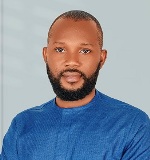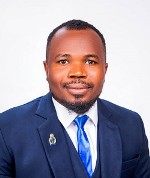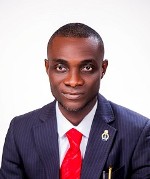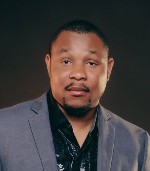in Building Projects in South-Eastern Nigeria
FEATURED PAPER
By Ogbonna S. Orji, PhD i, Ogochukwu A. Amuda, PhD i, Victor O. Ohamma, PhD i, Gospel O. Okereii
i Department of Quantity Surveying
Imo State University, Owerri, Nigeria
ii Kennesaw State University, Georgia USA
Abstract
Over the years, the use of photovoltaic technologies in the building sector in South-East, Nigeria is however very low due to perceived high cost. This study examined the factors affecting the cost of building applied photovoltaic (BAPV) in Nigeria. In South-East Nigeria, a survey study employing a purposed design questionnaire with 508 participants (including construction professionals, PV contractors, and building contractors) was carried out. 376 completed surveys were utilized for analysis in the exercise. Descriptive statistics of frequency, basic percentages, and inferential factor analysis are the data analyses used. The findings indicate that the cost of BAPV is significantly influenced by seven key aspects, including a lack of local skills, inaccessible local technologies and expertise, component design life, and full life cycle cost elements. These elements make up the pertinent cost drivers for installing building applied photovoltaic systems. It follows that implementing optimization techniques in these areas might greatly reduce the present cost of constructing a solar system in South-East Nigeria. The study suggests implementing pertinent tactics in a comprehensive manner that have been validated by the study in order to increase cost performance and disperse the usage of PV technology in the South-East. In order to improve the shared experiences among project developers, PV contractors, policy makers, and regulators at the regional level; the research also suggests that a collaborative PV supply chain be encouraged. This will improve the critical analysis of the BAPV cost structure and the ways in which the circumstances inside the country impact the cost structure.
Keywords: Photovoltaic, Solar, Building Applied Photovoltaic, Sustainable Energy, Cost Factors, South-East Nigeria.
Introduction
Building structures utilise the significant proportion of global energy stock. Energy sources to building over the years come from conventional electricity transmitted over distance to the point of use. Numerous sources of renewable technologies are obtainable but photovoltaic solar has gain widespread endorsement based on its numerous benefits (Izam et al., 2022). These benefits therefore situate it as one of the approaches for reducing fossil-based energy consumption for sustainable development (Adebiyi & Moloi, 2024). The term photovoltaic therefore describes technologies that convert solar to electricity (Marques Lameirinhas et al., 2022).
Based on in-country’s assessment, indications are ripe that Nigeria retains a good potential to maximise photovoltaic energy for use in buildings. However, accessibility in Nigeria is still largely dependent on oversea market inputs with inferred high cost (Sesan et al., 2024). It is therefore more expedient now than ever to explore mechanisms to ensure accessibility of renewable energy technologies in the critical building sector through cost mitigation. The application of photovoltaic system is till date restricted to certain class of the society among Nigerian populace. Competition resulting from the niche PV system market has not also contributed to mitigate cost (Nduka, 2023). High capital cost therefore stand-out undisputed whenever the decision to adopt PV system is evaluated (Nduka, 2023).
A true picture of the scenario is the fact that the growth of BAPV application is bedeviled by high capital cost (Lawani et al., 2024). Beiter et al. (2021) maintained that cost is a key criterion in renewable energy system procurement. Energy poverty, high energy cost, erratic power supply, reliance of fossil-based portable generator are among the key factors influencing renewable energy technologies in the Nigerian building sector (Adeyemi-Kayode et al., 2022). Many African countries have chronic power shortage leading to outages and the need for expensive high cost back-ups power generation. Within her population, over 600 million people in Africa lack any form of access to electricity. In Nigeria, 55% of Nigerian household do not have access to power supply (Ibrahim & Ayomoh, 2022).
More…
To read entire paper, click here
How to cite this paper: Orji, O.S., Amuda, O.A., Ohamma, V.O., Okere, G.O. (2025). Evaluating the Factors Affecting the Cost of Building Applied Photovoltaic (BAPV) System in Building Projects in South-Eastern Nigeria; PM World Journal, Vol. XIV, Issue IX, September. Available online at https://pmworldlibrary.net/wp-content/uploads/2025/09/pmwj156-Sep2025-Orji-et-al-Factors-Affecting-Cost-of-Building-Applied-Photovoltaic-Systems.pdf
About the Authors

Dr. Ogbonna Steve Orji
Owerri, Nigeria
![]()
Qs. Dr. Ogbonna Steve Orji is a seasoned Academic, professional Quantity Surveyor and project manager, with proven skills for effective cost management in many construction projects involved. Dr. Orji is a lecturer in Department of Quantity Surveying Imo State University Owerri. Dr Orji is a BSc, MSc and Ph.D. holder in Quantity Surveying from Imo State University Owerri, A registered member of the Nigerian institute of Quantity Surveyors (NIQS). A Chartered Quantity Surveyor with Quantity Surveyors Registration Board of Nigeria (QRBN), A researcher, An Academician and A critical thinker. Research interest in Sustainable construction, Intelligent Construction Information Managements Systems, Smart Construction Technologies, AI and digital technologies in construction. Dr. Orji can be reached at orji_globe@yahoo.com

Dr. Victor O. Ohamma
Uturu, Abia State, Nigeria
![]()
Dr. Victor O. Ohamma is a distinguished quantity surveyor and academic, currently serving as Head of the Quantity Surveying Department at Gregory University Uturu, Abia State. A registered Quantity Surveyor with the Quantity Surveyors Registration Board of Nigeria (QSRBN) and a corporate member of the Nigerian Institute of Quantity Surveyors (MNIQS), Dr. Ohamma has an impressive academic background, having earned his first degree in 2009, a Master’s in Quantity Surveying with Merit in 2017, and a Ph.D. with Merit in 2024 from Imo State University Owerri.
With extensive industry experience in high-profile projects, Dr. Ohamma is a skilled quantity surveyor, researcher, Senior lecturer, and cost consultant. His research interests focus on cost management of sustainable buildings in emerging markets, and his scholarly works are increasingly featured in reputable local and international journals. Dr. Ohamma can be reached at ohammavictor@gmail.com.

Ogochukwu Asama Amuda, PhD
Owerri, Nigeria
![]()
Ogochukwu Asama Amuda is a seasoned Nigerian academic and professional in Quantity Surveying, now proudly holding a Ph.D. in the field from Imo State University, Owerri. His academic path has seen him earn both a Bachelor’s and a Master’s degree with Distinction from the same university, underscoring his dedication to deepening his expertise. Ogochukwu’s journey at Imo State University has been enriching, where he’s progressed through various academic roles, from Graduate Assistant, fueling his passion for teaching and research with a desire to inspire the next generation of professionals in Quantity Surveying. His current research interest in efficient resources allocation and cost management of sustainable infrastructure projects.
In addition to his academic accomplishments, Ogochukwu plays a vital role as the Partner and Operations Manager at Network Projects Nigeria, a consultancy with a strong focus on quantity surveying and project management. This role allows him to impact the field across Nigeria significantly. His professional credibility is further reinforced by his membership with the Nigerian Institute of Quantity Surveyors (MNIQS) and his registration with the Quantity Surveyors Registration Board of Nigeria (QSRBN), reflecting a steadfast commitment to maintaining high industry standards. Through his various roles, he continues to influence and contribute to sustainable infrastructure development and excellence of the quantity surveying profession throughout Nigeria. Dr. Ogochukwu Amuda can be reached through amudaogochukwu2@gmail.com

Gospel O. Okere
Atlanta, Georgia, USA
![]()
Gospel Okere is an Assistant Cost Manager and AI Generalist passionate about bringing precision and innovation to construction in the Atlanta Metro Area. With a Master’s in Construction Management, Gospel turns cost challenges into opportunities by optimizing budgets, streamlining workflows, and driving smarter outcomes. By blending cost expertise with AI-powered solutions, Gospel uncovers efficiencies, enhances performance, and delivers lasting value on every project.
[1] Corresponding Authors’ email: drorjiorgbonna@imsuonline.edu.ng









